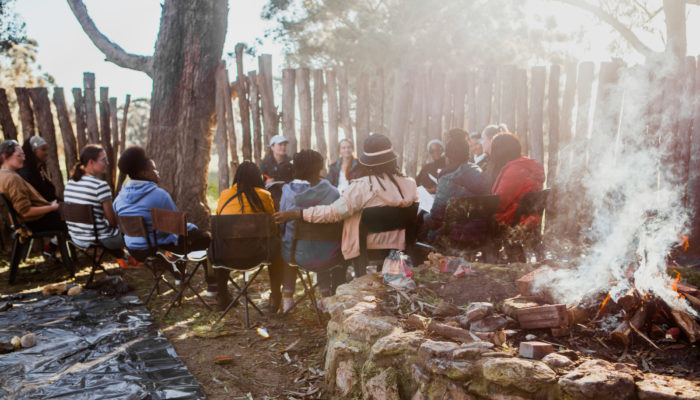
Try typing the phrase ‘period in geosciences’ into Google.
You’ll get something like ‘divisions of geological time’, and how we divide ancient earth time into eras, periods and epochs. We learn about this in the first year and again in every subsequent year of geological training. We are both geochronologists, so this is a topic we are deeply familiar with.
But we are also both women. To us, and every other person who menstruates, period means something else too.
Given the composition of most undergraduate classes, at least half the students are likely to experience menstruation during field training. Or during postgraduate fieldwork or during a research cruise or working in industry etc. Yet, this issue remains unspoken of at best, and taboo at worst.
So unspoken, in fact, that neither of us had ever talked about getting our period in the field, planning for it, or managing it. We had never talked about it with our peers or classmates, let alone mentioned something like this to staff running field training trips.
But as unmentioned as menstruation in the field is, it’s not unique to our experience. It is a global issue of silence.
As soon as we started talking to each other, we started to dig around, and while we did find some very useful and practical guidelines and policies, like this field-teaching primer on toilet stops in the field, we found very little written on this topic. This is remarkable, we think, given how many people it affects and how intrinsic field training, fieldwork and expeditions are to our broad discipline of geosciences.
At the Human Evolution Research Institute (HERI) at the University of Cape Town in South Africa, we receive funding from a scheme called #AdvancingWomxn – for womxn by womxn. A scheme designed to uplift and fund research by womxn in historically male dominated disciplines. As part of this we run an All Womxn Field Camp. In 2022, we had 22 participants ranging from undergraduate, to postgraduate and staff, all involved in the study of human origins, drawing on the disciplines of geology and archaeology.
On the second night, after everyone had a chance to get to know each other and relax into the setting, we looked at each other and said, “Let’s do this”. Starting the conversation was not easy. But we were surprised that it took very little for every single woman to speak up.
Our participants all reported experiencing menstruation at some point during their field training. They all expressed issues of discomfort, pain, and anxiety which affected their ability to work optimally. Many indicated the inability to openly communicate with lecturers or demonstrators about menstruation-related issues due to the surrounding stigma. No one had a positive experience or good story, but everyone had a story. This didn’t surprise us, but hearing these stories was confronting nonetheless. But the silence was broken.
We asked the group to brainstorm solutions, ideas, and suggestions for how menstruation in the field could be better handled. We quickly switched from venting to co-creating the spaces we’d all like to work in. A simple, inexpensive, immediate solution is to put together emergency period kits to accompany undergraduate field excursions. These contain a range of menstrual products, pain relief, hand sanitiser, disposal packets and other essential items, as well as a note of sympathy and encouragement to anyone needing the kit. These kits cost about R400 each, which is about 20 euros. Given the massive budgets available to take students into the field, this is a tiny additional expense which can have a huge impact.
We propose including sanitary wear in all field camp packing lists provided to students.
We recommended regular bathroom breaks should be planned for and made frequent throughout all field excursions.
Finally, we advocated for open communication about this issue, so talking about menstruation in the field, rather than just keeping quiet. We hope that the emergency period kits, putting them together, making them available for field trips, briefing staff and demonstrators, talking to students in pre-fieldwork briefing sessions, can help facilitate this.
The awkwardness and stigma that surrounds menstruation needs to be tackled head on. This is a big, global issue that affects more than half of us.
We want to work in more inclusive, safe spaces and if the only way to see a change is to be the change, then that’s what we need to do. Interventions can be as cheap, simple and practical as emergency menstrual kits, including menstrual products on packing lists and well-planned bathroom breaks.
We started off just talking to each other, then to a group of 22 women on a cold August night in South Africa in 2022 and then to a lot more people via our poster at the recently held EGU General Assembly (EGU23) and now to anyone who reads this blogpost. The silence has truly been broken. But let’s keep the conversation going, let’s make menstruation in the field the geological period that everyone is talking about.
Written by HERI Co-director Dr Robyn Pickering and Senior Lecturer in the Department of Geological Sciences at the University of Cape Town (UCT), and HERI #AdvancingWoman PhD candidate Rivoningo Khosa from the TAMS Department, NRF iThemba LABS, Johannesburg, South Africa

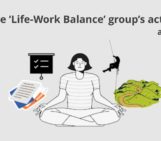
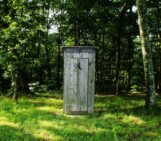
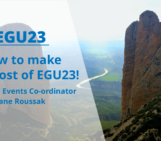
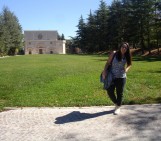
Tm
This is something women in the military deal with as well. Being on birth control pills you can manage most of the time, but if you can’t take them other methods are inconvenient for sure.
Maria
I know a lot of women who like to use cups or discs instead of tampons, especially if they don’t have a good place to dispose of the latter. As long as you can give them a good clean with soapy water once a day, you are good to go. If you have access to trash disposal, a tampon is probably no big deal and has the comvenience of being disposable.
I personally use my birth control pills to change when my period to simply avoid having my period in the field. I just don’t want to deal with it.